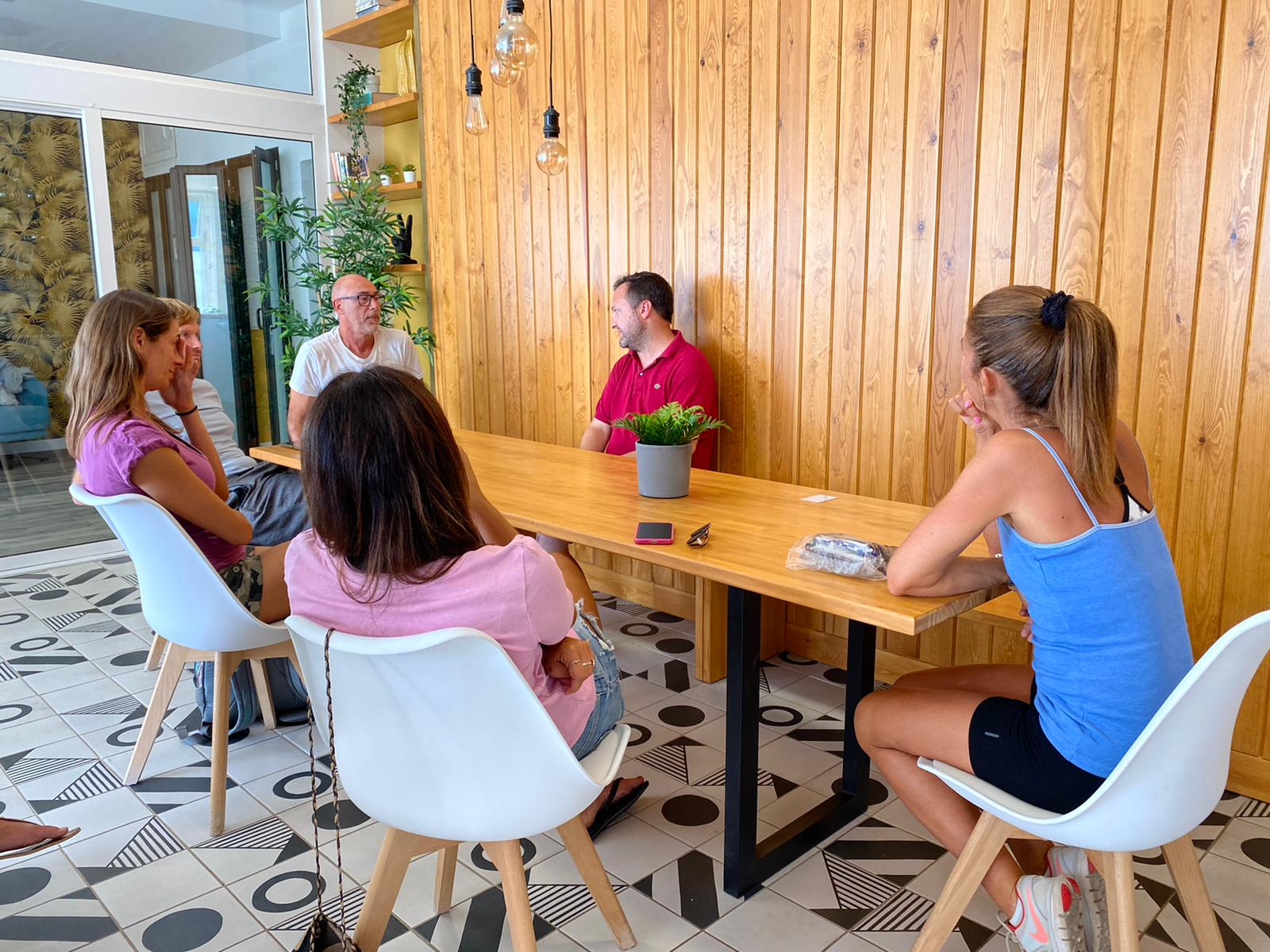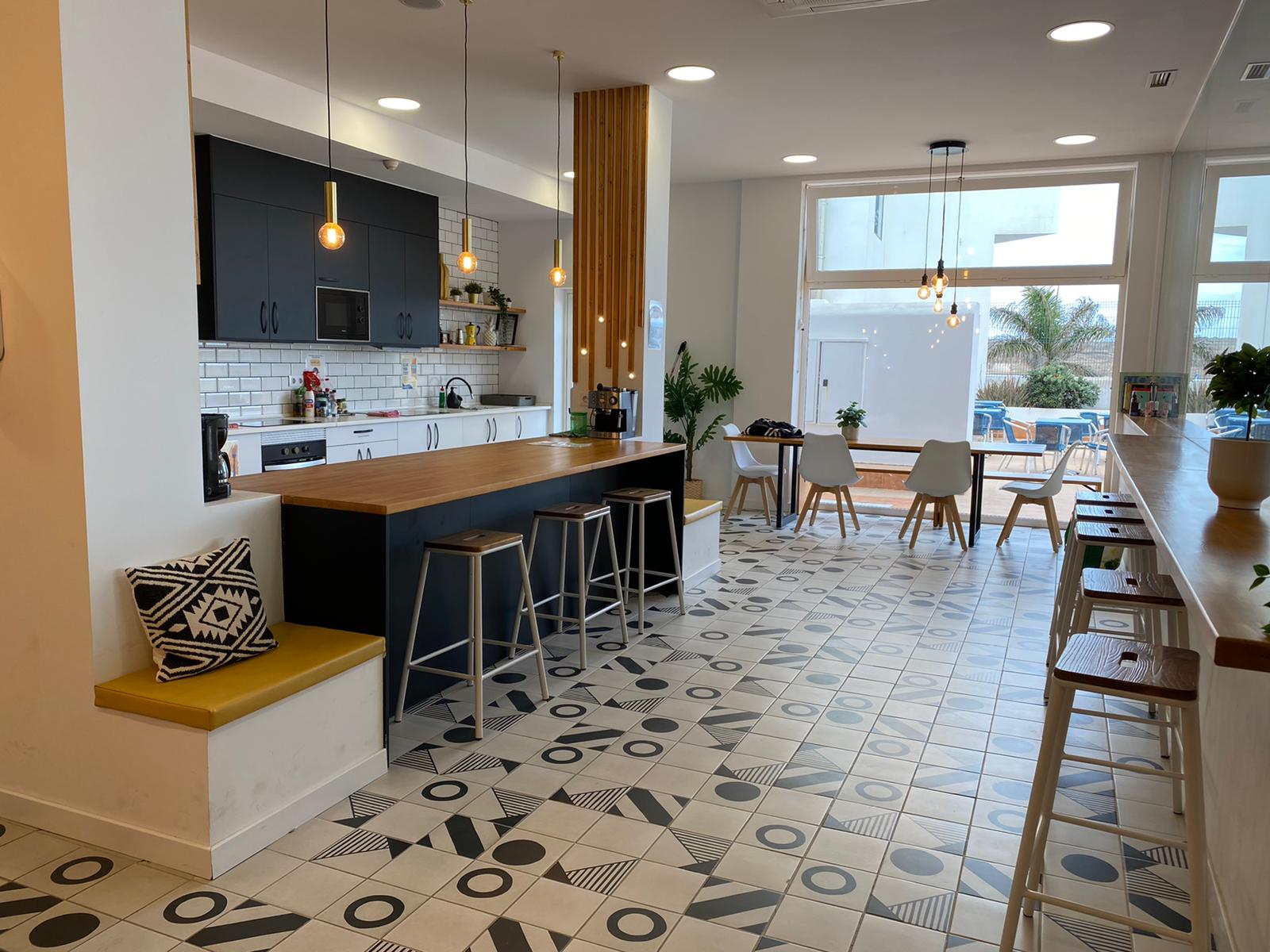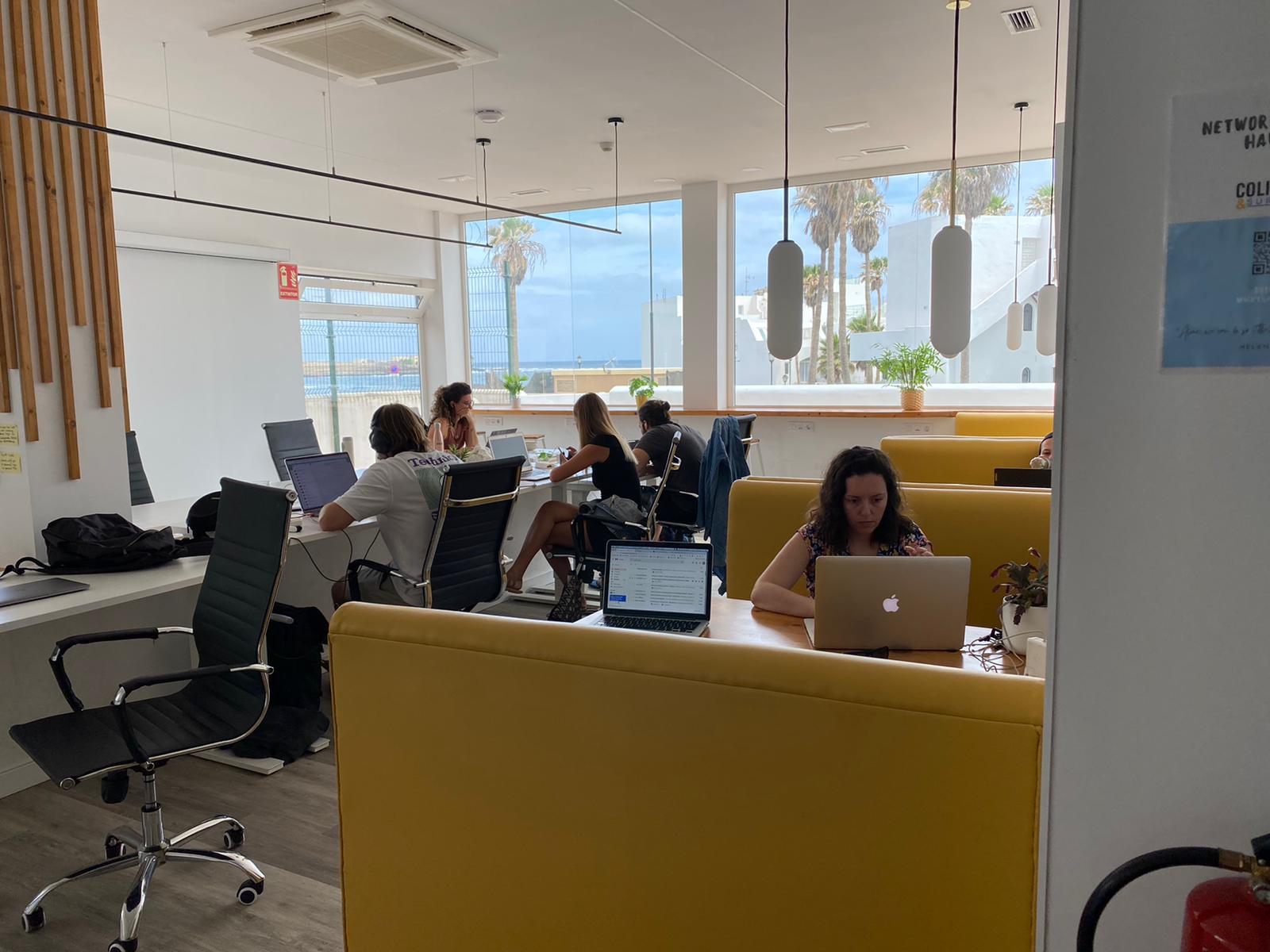
These lines are written from the terrace of the Coliving and Surfing hotel in Fuerteventura, a space that became a refuge for remote workers during the months of restrictions caused by the COVID-19 pandemic. Behind the computer screen we have the swimming pool, the surf shop and the entrance to the coworking space. In a place like this, people from Italy, the UK, Germany, France, Spain and other places come together who, with a nomadic lifestyle, stop in the Canary Islands to work for a few months, taking advantage of the quality of life on the islands. For several days we came to Fuerteventura to get to know their lifestyle, to share experiences with them and to investigate their legal situation for RemotEU.
Coliving is a space that combines a workplace and a home, conceived for temporary stays of digital nomads. In this case, Coliving and Surfing has a coworking space and hotel rooms adapted to this public. Around the corridors we have met teleworkers, mostly programmers and freelance consultants.


Distance and time must be considered when talking about the teleworking experience. These people have made teleworking their way of life and some of them admit to not having a fixed residence, moving between countries for indefinite periods of time. One senses in every corner of coworking that this is an increasingly common option, and those responsible for coliving confirm this afterwards. If before the pandemic there were few people who chose this life, after the exceptional health situation we have experienced, there has been an increase in the demand for this type of space.
Despite the rise of digital nomads, these days have helped us to realise that there is a great lack of knowledge about the implications of developing this lifestyle. Legal, fiscal and social implications that we are going to approach in RemotEU. We have spoken to some people, and one day we organised a round table where we presented RemotEU and where each of the attendees shared their personal and professional experience, raising their doubts. Some of them wanted to share their testimony for the project with the intention of obtaining a single regulation that would facilitate their procedures and prevent them from incurring in illegalities simply because of how confusing it is to comply with the obligations with the different administrations
Our conclusions after this trip:
After these days we have found that, generally speaking, there is a great lack of knowledge on the part of digital nomads about the tax implications of their lifestyle. They say that they are not doing anything wrong, and in their defence we believe that this is true, but there are legal issues that, due to lack of knowledge and lack of rigour on the part of the Public Administrations themselves, are not taken into account.
For example, to determine a person's tax residence, the 183-day rule , is usually applied, that is, residing in a country for more than six months. This is not the only criterion that can be used by the administration. The criterion could be used in cases like this to require people to pay their taxes where they are, even if that is not their residence.
They are also unaware that the fact of being in a country carrying out an economic activity, even if it is for a third country, means that they can be investigated by the administration of the place where they are and that, therefore, if they are committing any irregularity (even if this is due to ignorance), they can be sanctioned.
Similarly, it is considered that Europe is a single space and that there is no difference between being in one country or another, regardless of the regulations that each country has with other countries. Bilateral agreements govern tax and social security legislation, but there are no agreements between all countries. For example, there is no bilateral agreement between Spain and Denmark, so a person from Denmark who moves to Spain to telework may be obliged to pay taxes in both countries.
In the case of companies who have agreed this model with their employers, the latter are also unaware of their obligations. A company that has a worker residing in another country may be required by the authorities to have a permanent establishment. In this way, the company must employ the worker in this country, complying with the legislation in force and paying its social security contributions. Otherwise, you may be subject to penalties.
For self-employed workers, when they only work for one client, they may be falsely self-employed. In this case, the company they work for is committing an illegality and can also be sanctioned.
A few hours before this trip comes to an end and after this reflection, we return to the office even more aware of the need to carry out a project like RemotEU, and with concrete actions such as the need to train workers and companies on taxation and social security.